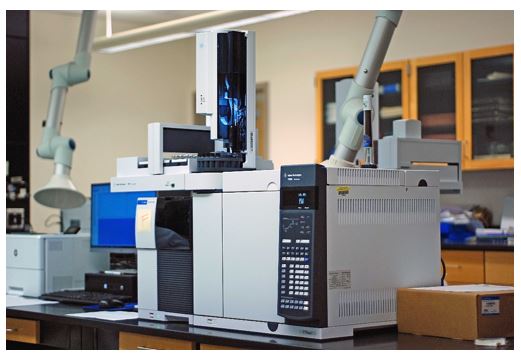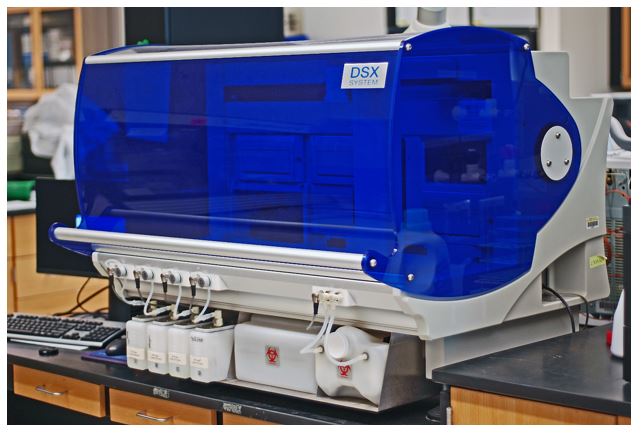You are trying to access the old NJSP website. You will be redirected to the new website automatically
Please bookmark the NEW website link at https://www.njsp.gov
Toxicology
The primary duty of the Toxicology Unit is to analyze blood and urine for the presence of impairing compounds in the investigation of driving under the influence charges. Blood samples are tested using headspace gas chromatography for alcohol content to determine whether the ethanol level exceeds legal limits. Liquid samples such as alcoholic beverages are also analyzed for alcohol content in order to aid the police investigations where the question of alcohol content is suspected. Both blood and urine are analyzed for the presence of performance impairing illegal and prescription drugs. Initially, samples are screened using an antigen antibody test to determine what class of compounds may be present. To conclusively identify a specific drug a variety of extraction techniques and instrumentation including gas chromatography mass spectrometry (GC/MS) are utilized.
Another facet of the Toxicology Unit involves testing blood, urine, and/or liquids for substances used in the commission of Drug Facilitated Crimes (DFC). DFC includes rape or other sexual assault, robbery, and other crimes where criminal acts are carried out by means of administering a substance to a person with the intention of impairing their decision-making capacity. DFC Cases also extend to taking advantage of an impaired person, without their consent, after voluntary intake of incapacitating substance(s).
The focus of DFC Analysis is to detect substances that cause impairment, sedation, unconsciousness, or alter judgement or memory. Often the Toxicology Unit must pursue trace amounts of impairing substances, specifically CNS Depressants, which include benzodiazepines, sedatives and sleep aids, narcotic analgesics, and gamma hydroxy butyrate (GHB), that can aid law enforcement in the investigation of these cases.
Agilent Technologies GC/MSD

Dynex Analyzer




